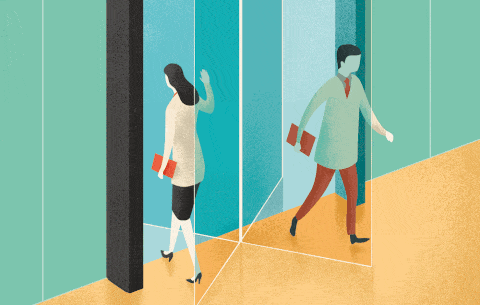Yes, Women have ADHD Too
Source: The New York Times
This topic has been around in the psychiatric world for a while now, but the issue has exploded as it’s been spread on social media especially TikTok with women who are diagnosed with ADHD.
Women are commonly misdiagnosed in any medical field and mental health is the most crucial but can be hard to pinpoint. Journalist Maya Dusenbery did deep research on women constantly being misdiagnosed and found there is a gap between knowledge and trust, “This knowledge gap is not just about the history of failing to consider men’s and women’s experiences with the same disease or with the same treatment.”
The trust element has to do with women feeling very real and even intense symptoms for doctors to invalidate and downplay to where a woman seems dramatic or receives a smaller diagnosis, “The idea that a woman’s medically inexplicable complaints “were all in her head,” still persists. Female patients are frequently told they’re under stress, or have anxiety, or suffer from depression, or the complaints are a result of hormonal cycles—whether menstrual cramps or perimenopause.”
Source: Jstor Daily
Women run into delays with doctors with diseases but even more difficulties occur with a mental diagnosis which is much more fragile and dangerous. Women repeatedly being misdiagnosed has been long reported since the 19th century and were given horrendous and life altering procedures like lobotomies for women having different beliefs or lifestyle choices.
As this is still an ongoing issue medically, final diagnoses commonly come too late or already have an emotional toll on the patient leading to a web of more problems.
“The study of health data from 6.9 million Danish people found that across hundreds of diseases, women on average were diagnosed when they were about four years older than the age at which the conditions were recognized in men,” reveals Reuters Health report.
As a young woman, I experienced this myself when I started to feel stomach pain at age 15. I saw countless doctors and was finally diagnosed with Crohn's Disease at the age of 18.
One of the main reasons for misdiagnosis is that diseases and disorders are often gendered Tamara Mathias reports on the Danish study, “For example, women are diagnosed later for heart disease, not only because it is still largely considered a 'man's disease, but also because our diagnostic tests are male-biased, in terms of 'typical' being the male presentation. All medical schools and healthcare training should emphasize both biological sex differences and gender biases so healthcare professionals are aware of unconscious biases."
Women have different symptoms of ADHD than men as symptoms include forgetfulness, easily distracted, not following through on tasks, trouble organizing, and more hypersensitivities than men like sensory overload, migraines, stomach aches, nausea, and sleep trouble. This showcases the knowledge gap and lack of education when it comes to the upkeep in new information with doctors.
Source: Prevention
Women with ADHD also have other disorders that are diagnosed like mood disorders, personality disorders, anxiety, eating disorders, and Oppositional Defiant Disorder (ODD) as the ADHD itself is often missed. One of the biggest misconceptions is that ADHD is a male disorder.
Men showcase hyper and disruptive behavior as women are usually inattentive but are unrecognizable. Women are better at hiding their ADHD while continuously struggling until the anxiety, moods, and stress become intense.
“They arrive at adulthood often struggling with anxiety and/or depression,” Dr. Nadeau says. “[W]hen they seek counseling, these are the diagnoses they receive, leaving their ADHD still in hiding, but causing countless challenges as they go about their daily lives,” reports CHADD (Children and Adults with Attention-Deficit/Hyperactivity Disorder).
What also develops depression in women with ADHD is the negative sense of self undiagnosed women have from lack of attention and the brawl before completing a task. “However, the chronic underlying feelings of inadequacy and shame are difficult to acknowledge and articulate, and more challenging for clinicians to recognize or quantify,” says Dr. Littman.
Source: ADDtitude
What could be done?
Find a medical professional who is experienced in treating girls/women with ADHD.
Get into ADHD focused therapies like Cognitive Behavior Therapy (CBT) and cognitive rehabilitation.
Finding and asking a doctor about their experience with prescribing ADHD medication along with hormonal fluctuations.
If you have sensory hypersensitivities, irritability, inattentive symptoms, eating dysregulation, restlessness, disorganization and more, ask a doctor if this is underlying ADHD.
“We must educate and engage in conversations with clinicians and educators about how ADHD presents in girls and women. We also need to have discussions about the role that conscious or unconscious racial bias plays in identifying and treating racial minority girls and women with ADHD. Continuing education series, workshops and conferences with dedicated sessions to these topics are needed to foster these conversations” says the Duke Center for GirlS & Women with ADHD.
Get to know all the common symptoms of women with ADHD.




